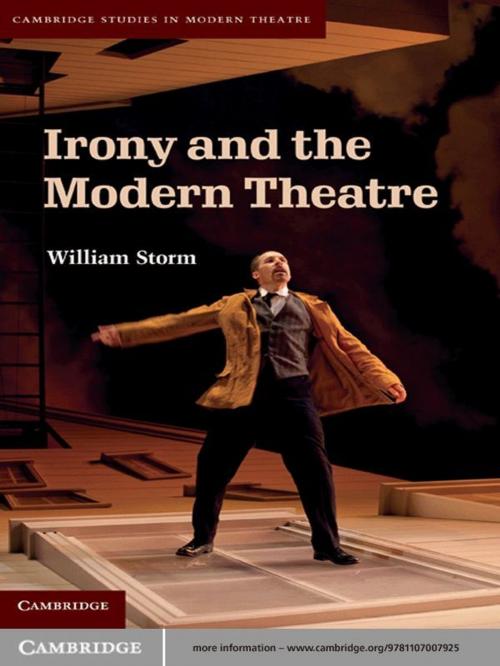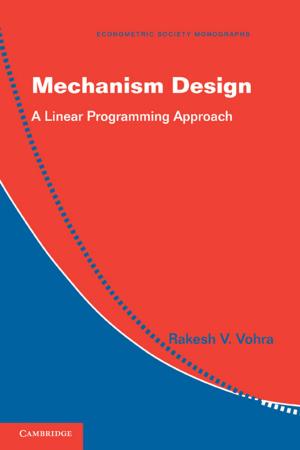Irony and the Modern Theatre
Fiction & Literature, Drama, Nonfiction, Entertainment, Performing Arts| Author: | William Storm | ISBN: | 9781139064064 |
| Publisher: | Cambridge University Press | Publication: | May 5, 2011 |
| Imprint: | Cambridge University Press | Language: | English |
| Author: | William Storm |
| ISBN: | 9781139064064 |
| Publisher: | Cambridge University Press |
| Publication: | May 5, 2011 |
| Imprint: | Cambridge University Press |
| Language: | English |
Irony and theatre share intimate kinships, not only regarding dramatic conflict, dialectic or wittiness, but also scenic structure and the verbal or situational ironies that typically mark theatrical speech and action. Yet irony today, in aesthetic, literary and philosophical contexts especially, is often regarded with skepticism - as ungraspable, or elusive to the point of confounding. Countering this tendency, William Storm advocates a wide-angle view of this master trope, exploring the ironic in major works by playwrights including Chekhov, Pirandello and Brecht, and in notable relation to well-known representative characters in drama from Ibsen's Halvard Solness to Stoppard's Septimus Hodge and Wasserstein's Heidi Holland. To the degree that irony is existential, its presence in the theatre relates directly to the circumstances and the expressiveness of the characters on stage. This study investigates how these key figures enact, embody, represent and personify the ironic in myriad situations in the modern and contemporary theatre.
Irony and theatre share intimate kinships, not only regarding dramatic conflict, dialectic or wittiness, but also scenic structure and the verbal or situational ironies that typically mark theatrical speech and action. Yet irony today, in aesthetic, literary and philosophical contexts especially, is often regarded with skepticism - as ungraspable, or elusive to the point of confounding. Countering this tendency, William Storm advocates a wide-angle view of this master trope, exploring the ironic in major works by playwrights including Chekhov, Pirandello and Brecht, and in notable relation to well-known representative characters in drama from Ibsen's Halvard Solness to Stoppard's Septimus Hodge and Wasserstein's Heidi Holland. To the degree that irony is existential, its presence in the theatre relates directly to the circumstances and the expressiveness of the characters on stage. This study investigates how these key figures enact, embody, represent and personify the ironic in myriad situations in the modern and contemporary theatre.















